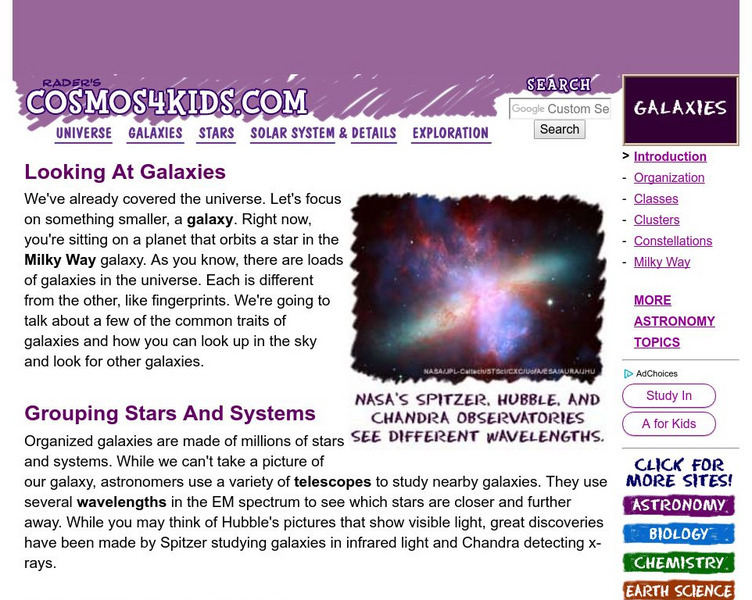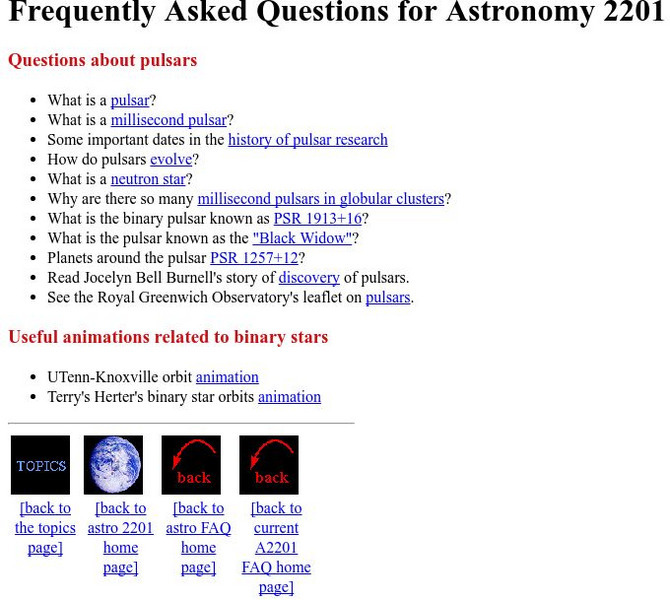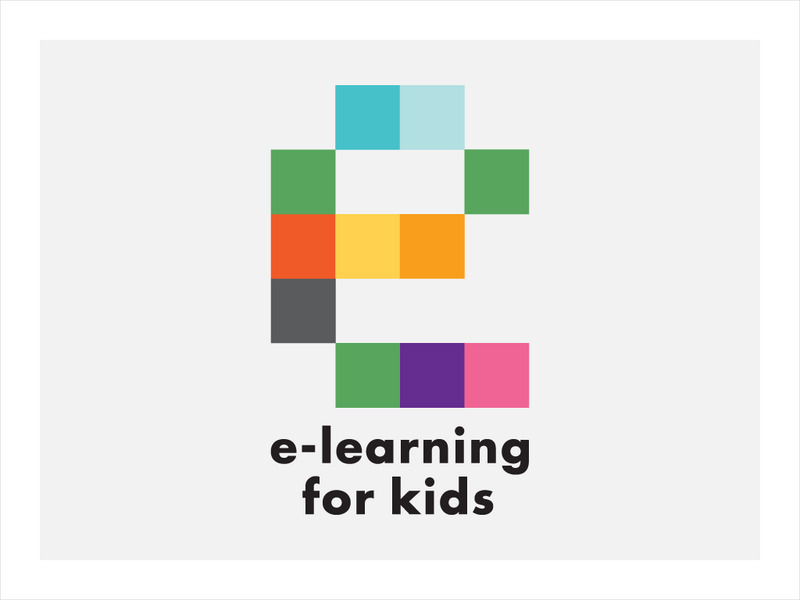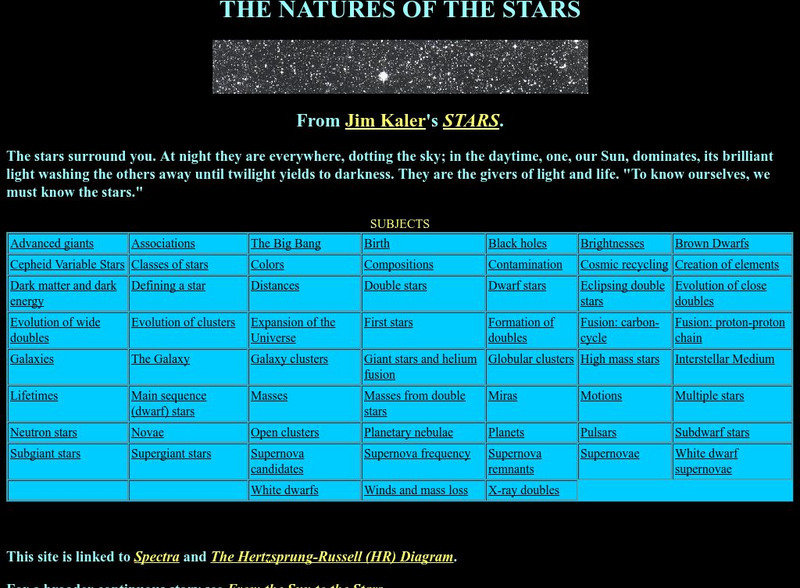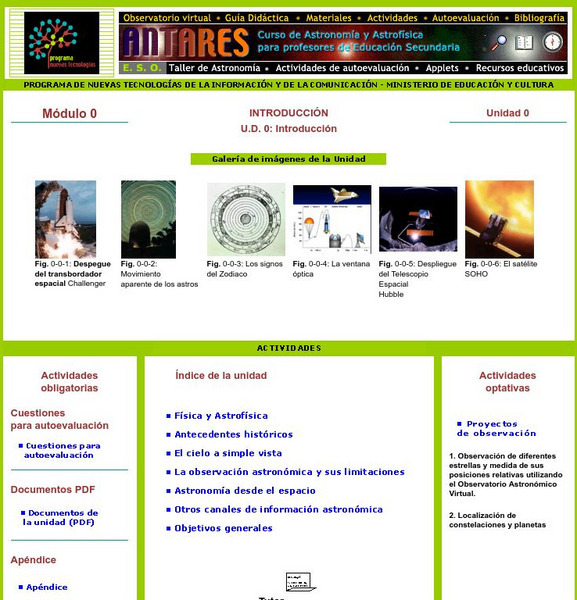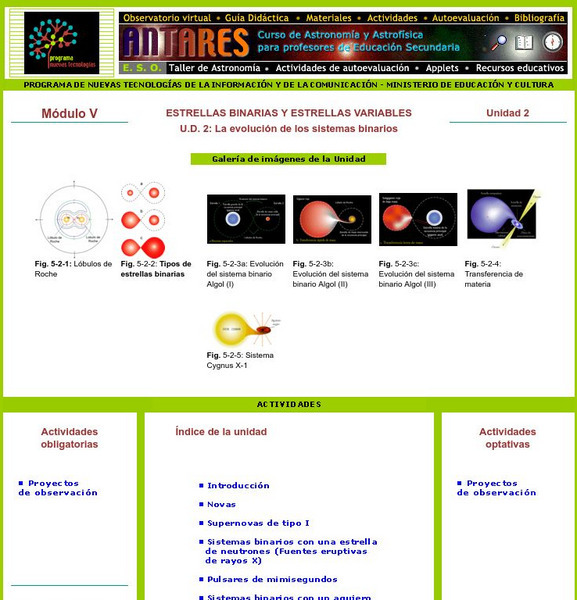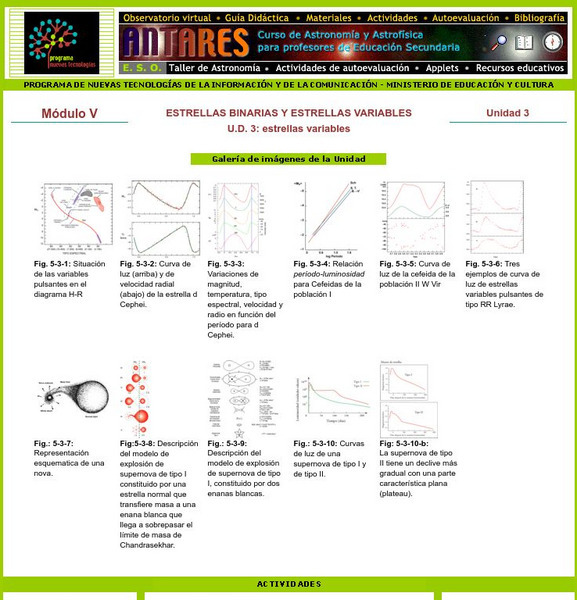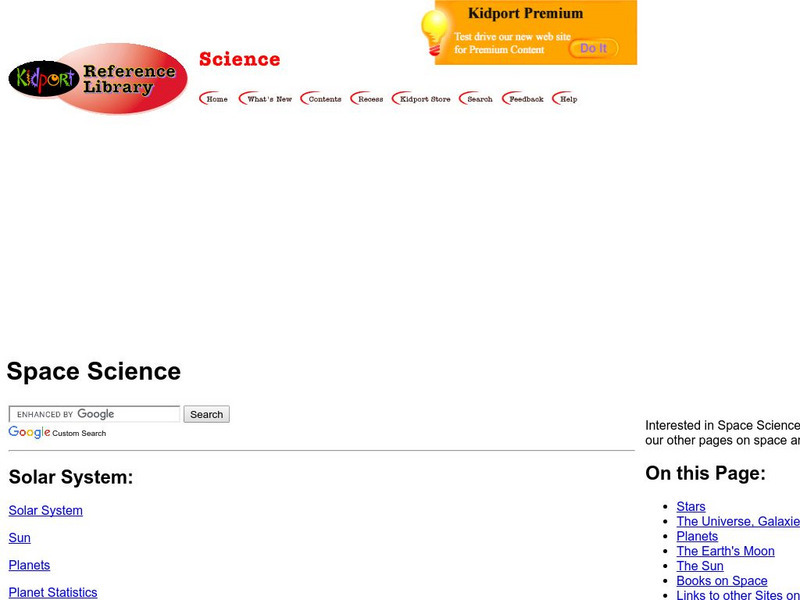Cosmos 4 kids
Cosmos4 Kids: Galaxies
Learn the basic facts about galaxies. Brief, to the point text make this site most appropriate for younger students.
Cornell University
Cornell University: Astronomy: Frequently Asked Questions
Definintions for pulsars, millisecond pulsars, the evolution of pulsars, neutron stars and "Black Widows." Features related links.
E-learning for Kids
E Learning for Kids: Science: Madagascar: What Is the Solar System?
Patrick loves being a pirate, but he'd prefer to be an astronomer. Join him, and learn about everything high in the sky like the moon, stars, and asteroids.
National Endowment for the Humanities
Neh: Edsit Ement: Galileo: Revealing the Universe
In this lesson plan, middle schoolers will consider "Galileo: Revealing the Universe." The plan includes worksheets and other student materials that can be found under the resource tab.
University of Illinois
University of Illinois: Stars and Constellations: Neutron Stars and Pulsars
This resource provides a brief description of the relationship between a neutron star and a pulsar. It details the pulsing rate and death of a pulsar.
Science Education Resource Center at Carleton College
Serc: How Can We Measure the Wavelength of Light Emitted From Stars?
This activity is designed for students to apply their knowledge of mathematics and physics to "real life" situations. Students are presented with the situation that they are on a camping trip and wish to know the wavelength emitted by a...
Ministerio de Educación (Spain)
Ministerio De Educacion: Introduccion Modulo 0
Observe different stars and measure its relative position utilizing the Virtual Astronomical Observatory.
Ministerio de Educación (Spain)
Ministerio De Educacion: Diagrama H R Modulo Ii Unidad 3
In this unit you will study the different types of luminosity, the effective temperature of the stars and the Hertzsprung-Russell diagram.
Ministerio de Educación (Spain)
Ministerio De Educacion: Espectros Estelares Modulo Ii Unidad 2
In this module you will study the composition of stars. You also will be able to classify them through the virtual observatory.
Ministerio de Educación (Spain)
Ministerio De Educacion: Evolucion Estelar Modulo Iii Unidad 1
In this module you will study the birth, life and death of stars.
Ministerio de Educación (Spain)
Ministerio De Educacion: Fases Finales De La Estrellas Modulo Iii Unidad 2
In this unit you will learn about the final stages of the life of massive stars.
Ministerio de Educación (Spain)
Ministerio De Educacion: Fuentes De Energia Estelar Modulo Iii Unidad 3
In this unit you will learn about stellar energy sources .
Ministerio de Educación (Spain)
Ministerio De Educacion: Una Estrella Llamada Sol Modulo Iv Unidad 1
In this module you will study the structure and composition of the star closest to us: the Sun.
Ministerio de Educación (Spain)
Ministerio De Educacion: Estrellas Binarias Modulo v Unidad 1
In this module you will learn the different types of binary stars.
Ministerio de Educación (Spain)
Ministerio De Educacion: Estrellas Binarias Y Variables Modulo v Unidad 2
In this module you will study about Novae and Supernovae and will learn about the evolution of the binary system.
Ministerio de Educación (Spain)
Ministerio De Educacion: Estrellas Variables Modulo v Unidad 3
In this module you will learn about variable stars. Here you will find a large gallery of images.
Kidport
Kidport: Space Science
This complete resource will help students to improve their understand of space exploration. Includes images of the universe, galaxies, stars and planets.
Ministerio de Educación (Spain)
Observaciones Y Modelos en Astronomia
How does the length of the day change? How does the height of the sun change? Do we always see the same star? The answer to these questions and different observations about the sun, the moon and the stars that we can do from earth can be...
Ministerio de Educación (Spain)
Ministerio De Educacion: Astronomia Para Ninas Y Ninos
Learn basic astronomy and travel through space. After you finish the lessons you can take the evaluation to obtain the clues needed to play the fun space games.
Other
Robert Frost: America's Poet
This site provides many full text poems by Robert Frost. There are also multiple links for more information on Frost and his works.
TED Talks
Ted: Ted Ed: How Do We Study the Stars?
Yuan-Sen Ting takes us into deep space to show how astronomers study the stars beyond our reach. [4:46]
American Association of Physics Teachers
Com Padre Digital Library: Physics to Go: Explore Physics on Your Own
Contains a full physics curriculum with links to games, webcasts, and activities. By creating a free account, students and teachers can create their own personal collection of resources.
University of Michigan
American Verse Project: Flame and Shadow, by Sara Teasdale
Maintained by the University of Michigan's Humanities Text Initiative, this website offers the entire text of three of Teasdale's collection, "Flame and Shadow," is available through a series of links.
American Museum of Natural History
American Museum of Natural History: O Logy: Stuff to Do: Stargazing
Get started on the road to becoming an expert stargazer by following these recommendations for identifying stars, planets, and constellations. Includes an example of a journal that can be used as a record of your investigations.


